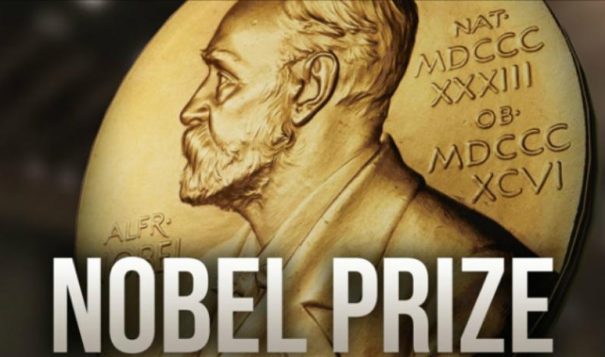 Nobel Peace Prize
Nobel Peace Prize

University of Arizona law professor James Anaya has dedicated his life to the defense of human rights and the freedoms of indigenous peoples. He has argued before the Supreme Court and led a precedent-setting case that recognized indigenous land rights as a matter of international law.
He may soon add Nobel Peace Prize winner to his résumé.
Anaya was nominated, along with the United Nations Permanent Forum on Indigenous Issues, by Norwegian lawmaker Torgeir Knag Fylkesnes. While the Nobel Committee does not officially divulge nominations, Fylkesnes revealed his nomination earlier this month.
Previous American recipients include Theodore Roosevelt, Martin Luther King Jr., Elie Wiesel and President Obama. Nobel laureates are announced in October.
“It’s hard to capture in my mind what it means. It came as a surprise,” Anaya told us. “I’m honored to be in the company of the many people that have been singled out for their work.”
But more significant than any personal glory, the importance of receiving the prestigious award would be the spotlight it would shine on the issues close to his heart.
As the United Nations special rapporteur on the rights of indigenous peoples since 2008, Anaya has traveled the world investigating and documenting the conditions of native peoples as well as interacting with governments to exchange information on problems and solutions.
For Anaya, the greatest challenge faced by indigenous peoples is overcoming the legacy of discrimination and exploitation. While this may manifest itself in different forms throughout the world, its results are a deep gap in social and economic well-being between native peoples and society as a whole.
Indigenous peoples not only encounter outright racism, Anaya said, they face the subtle disparagement of being depicted as backward historical remnants or caricatured in popular culture — when they are represented at all.
Perhaps the biggest obstacle advocates confront is the lack of understanding among the general population on indigenous peoples. Their invisibility in the political and popular spheres — part of the systemic problems related to discrimination — makes public awareness and any subsequent political will to help virtually nonexistent.
This lack of representation is part of the rationale for having a U.N. mechanism to prod countries into action, Anaya told us. As a special rapporteur, his mission has included raising awareness internationally to encourage movement on the rights of indigenous peoples by establishing a dialogue between these groups and government.
This ongoing effort is a challenge that is also present in our own community.
“Even in Tucson, which is literally surrounded by native communities, the education system doesn’t incorporate a holistic understanding of the nature of the place, its history,” Anaya said.
While he cited the university’s demonstrated commitment to issues concerning Native Americans and indigenous peoples, there is still a lot to do throughout our region. Ideally everyone should understand where we are, Anaya told us, and the rich cultural diversity that comes from the original people of this land.
“We all stand to benefit from a better understanding of that landscape and that history,” he said.
Whether he receives the Nobel Peace Prize or continues to have an active role through the United Nations when his appointment ends in April, Anaya will remain involved in human-rights causes and the effort to increase awareness of the plight and contributions indigenous peoples have made.
His work is to be saluted and honored as we strive to be more attuned with the realities of Native Americans in our community and indigenous peoples throughout the world.
